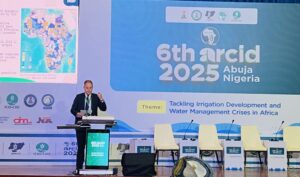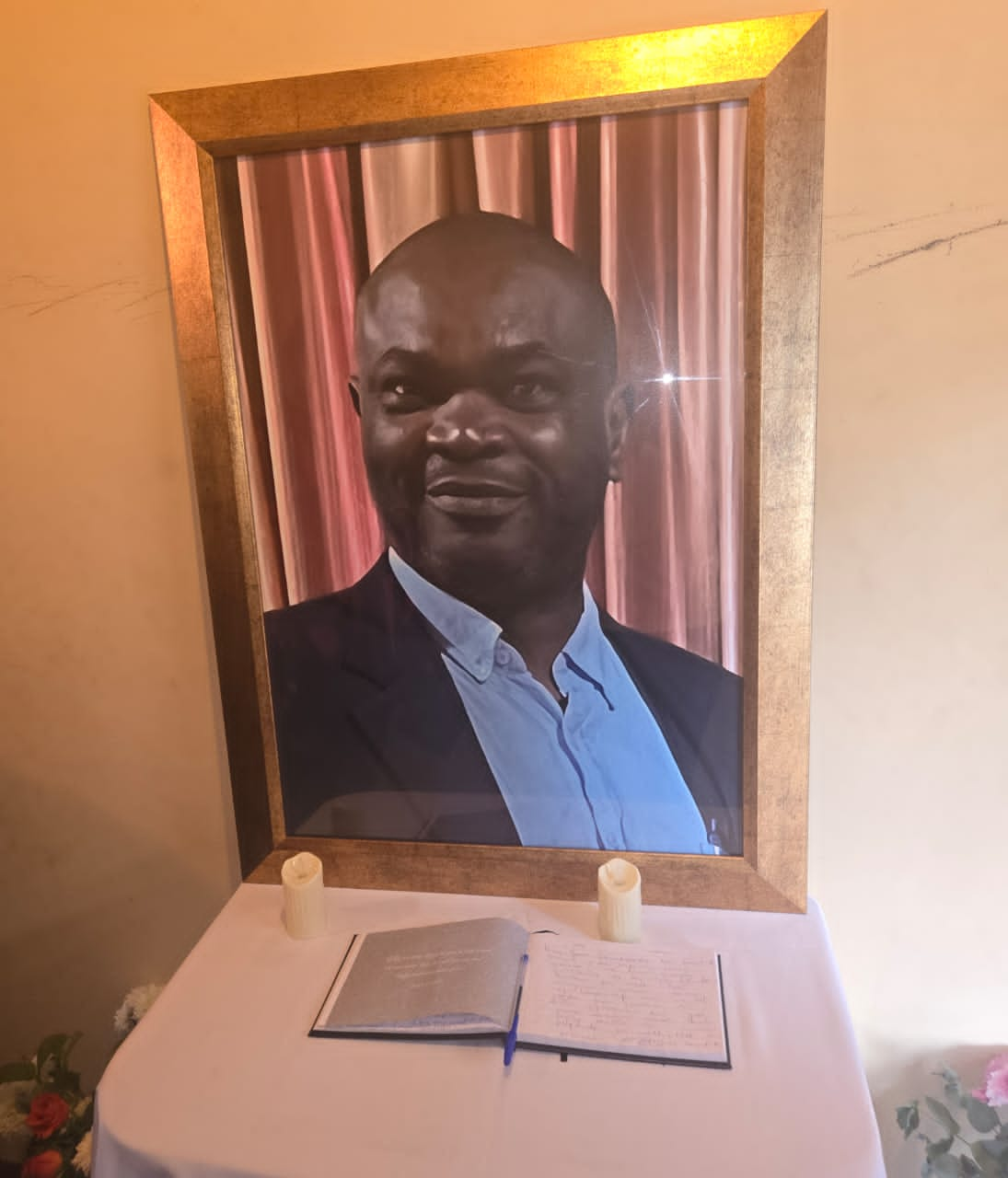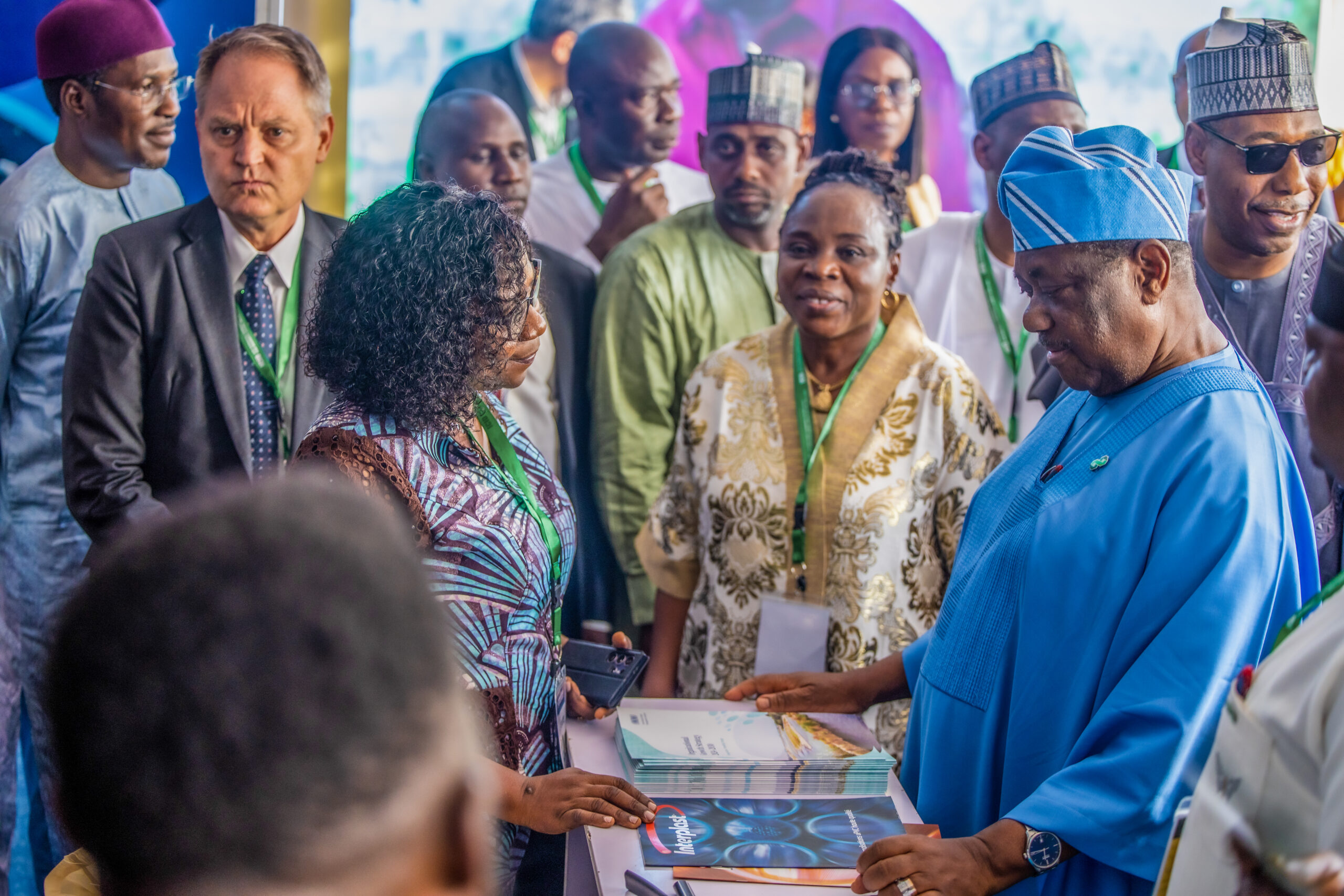NUJ FCT decries telecom costs, poor infrastructure
By Emmanuel Oloniruha
The Nigeria Union of Journalists (NUJ), Federal Capital Territory (FCT) Council, has expressed concern over the rising cost of telecommunications and internet data in the country.
In a communiqué issued after its congress in Abuja, the union described the situation as a heavy financial burden on citizens.
The communiqué was jointly signed by the Chairman of the Communiqué Committee, Odigie Kelvin, along with committee members Kehinde Ayanfe and Ebriku John.
The union urged the Nigerian Communications Commission (NCC) to investigate current telecommunications billing practices and introduce measures that ensure affordability and consumer protection.
Additionally, the NUJ FCT Council appealed to the Minister of the FCT, Nyesom Wike, to address the state of dilapidated infrastructure at its secretariat.
The appeal was also included in the jointly signed communiqué.
The union decried the poor condition of the facility currently used for its congresses, describing it as unfit for a professional body of journalists operating in the nation’s capital.
It called on Wike, popularly known as “Mr Project,” to come to the union’s aid in completing the long-delayed NUJ Pentagon project, a building envisioned as a landmark edifice for journalists in Abuja.
“The current state of our secretariat is appalling. We are earnestly appealing to the Minister to undertake a facility tour and see for himself the infrastructural decay we contend with.
“We believe that under his leadership, the secretariat and Pentagon project can finally be transformed into a lasting legacy,” the communiqué stated.
The union called for improved electricity supply in the FCT, encouraging the Abuja Electricity Distribution Company (AEDC) to enhance its efficiency and service delivery to better support residents and businesses.
It noted that poor electricity supply was hampering productivity and negatively impacting quality of life.
Further, the NUJ expressed concern over the increasing rate of maternal mortality.
The union urged the Federal Government to provide free maternal healthcare services including pre-natal, ante-natal, and post-natal care to alleviate the burden on expectant mothers and reduce preventable deaths.
Reaffirming its commitment to advocating for the welfare of journalists and the general public, the union pledged continued engagement with relevant authorities to address these pressing challenges. (NAN)(www.nannews.ng)
Edited by Abiemwense Moru
Ogun supports farmers with N5.4bn inputs to boost food production
By Joy Akinsanya
The Ogun State Government has supported farmers with N5.4 billion worth of inputs through the Ogun State Transformation Economic Programme (OGSTEP).
The Commissioner for Agriculture, Mr Bolu Owotomo, said this at a news conference on Monday in Abeokuta.
The News Agency of Nigeria (NAN) reports that the development objective of OGSTEP is to increase agricultural production and stimulate private sector participation in the agricultural, industrial and skills sectors of the Ogun State economy.
Owotomo said the State Governor, Dapo Abiodun, through the OGSTEP initiative, had ensured increment in food productivity in the state.
“Supporting farmers with inputs worth billions of naira, we are expecting the farmers to produce 318,000 tonnes of commodities.
“So far, we have harvested 65,000 tonnes of commodities and we are still going to harvest 92,000 tonnes which we have started.
“We are expecting all the farmers under the OGSTEP to generate about N15.9 billion from their produce,” he said.
Owotomo said the state Ministry of Agriculture had registered 160,000 farmers adding that over 40,900 farmers had been shared into 2,537 groups.
He added that 22,000 farmers under the OGSTEP programme had been supported across the state with inputs.
He said 16,000 farmers had benefited from the state’s capacity building programme, while 34,000 farmers have been laid to offtakes.
He promised that the state government would continue to ensure food stability through various interventions that would cut across the 20 local government areas. (NAN)(www.nannews.ng)
Edited by Ifeyinwa Okonkwo/Chinyere Joel-Nwokeoma
Double-digit GDP growth necessary to achieve $1trn goal – UBA Chief
By Grace Alegba
Mr Oliver Alawuba, Group Managing Director, United Bank for Africa (UBA), says Nigeria requires a double-digit Gross Domestic Product (GDP) growth to achieve the projected one-trillion-dollar economy target by 2030.
Alawuba made this remark on Monday in Abuja, at the ongoing 36th Edition of the Finance Correspondents and Business Editors Association of Nigeria Seminar, organised by the Central Bank of Nigeria (CBN).
The theme of the seminar is, “Playing the Global Game: Banking Recapitalisation Towards a One-Trillion-Dollar Economy”.
He emphasised the necessity of institutional frameworks and government support for banks to invest in critical infrastructure that would foster accelerated growth of the Nigerian economy.
“We need to grow at double digits to get to one-trillion dollar in 2030. We need 10 per cent growth, which is achievable,” he said.
He said that only 12 per cent of Nigeria’s GDP is represented by the total assets of banks, while other economies have over 70 per cent to 100 per cent.
According to him, this indicates a significant gap where banks can intervene and help mobilise deposits, resources, and capital, ensuring that other sectors benefit from the banking system.
“The plan so far is highly beneficial for the economy. Strong banks require strong profits. Strong banks are crucial for building the strong economy we desire.
“It’s important that banks remain profitable so they can build a very robust reserve to support the economy and the banks themselves.
“The opportunities in Nigeria are immense. Therefore, sustainability will not be a problem.
“This is because banks will now be able to raise, even with the capitalisation we have undertaken, sufficient capital to truly elevate this economy to the next level,” the managing director added.
Alawuba also said the 50 per cent Cash Reserve Ratio (CRR) might be unsustainable for economic growth and urged its reduction, just as inflation rate was managed.
He highlighted the importance of security, financial inclusion and addressing infrastructure deficits in roads, ports and power.
He further stressed the need for tax incentives and a transition from a primary to a secondary economy to drive growth.
“We need an institutional framework and government support to invest in infrastructure and other areas to support the economy.
“A 50 per cent CRR is not sustainable if we are going to talk about the growth of the economy.
“I am happy that inflation is responding to the actions of the CBN.
“So, as the inflation rate comes down, we expect the CRR to come down,” he said. (NAN)(www.nannews.ng)
Edited by Olawunmi Ashafa
Nigerian Union in South Africa seeks transparent probe of doctor’s death
By Mufutau Ojo
The Nigerian Union South Africa (NUSA) has called for a transparent investigation into the death of Dr Francis Idika, a Medical Manager at the Vryheid Hospital in KwaZulu-Natal.
NUSA made the call in a statement on Monday after its officials visited the widow of the deceased in Pretoria.
The News Agency of Nigeria (NAN) reports that Idika, who served the Vryheid community for 18 years, was found dead on March 30.
NAN reports that the deceased is survived by a wife and two children.
NUSA, in the statement signed by its National Publicity Secretary, Mr Akindele Olunloye, rejected claims by the hospital authorities that Idika committed suicide.
It demanded accountability from the South African authorities regarding the true circumstances surrounding Idika’s death.
The statement, however, said NUSA would collaborate with South African National Civic Organisation, Public Servants Association of South Africa and
the Nigerian Doctors Forum of South Africa on the matter.
It also said Nigerian government
Missions in South Africa would be involved to ensure that the systemic abuse of Nigerian professionals was dealt with.
NUSA, in the statement, further claimed that it had unveiled “a troubling pattern of harassment and mistreatment directed at Dr Idika before his death.”
“Dr Idika endured years of
victimisation, wrongful disciplinary actions, and abuse at the hands of certain managers at Vryheid Hospital.
“We demand justice for the late Dr Idika who served the Vryheid community with commitment for 18 years.
” Before his death, he was harassed multiple times.
” At one point in December 2024, he was humiliated out of his apartment.
” His things were found in a separate room, with his personal belongings scattered all over,” it said.
The apex body of Nigerians in South Africa requested that the Department of Health should provide support for his family in this time of grief.
It also demanded that the department retracts its statement on SABC and eNews that he allegedly committed suicide.
” The report of the post-mortem states that he died of natural causes.
” We are certain from our assessment of this case that Dr Idika died of frustration from the continuous bullying, pressure, and gross abuse from
the hospital management,” the union said.
The body demanded an immediate forensic, transparent, and independent investigation into the circumstances surrounding Idika’s death.
It also called for accountability for those responsible for the alleged bullying and harassment of Idika.
NUSA, in the statement, further called for a review of policies protecting foreign professionals working in South African institutions.
According to the statement, NUSA will continue to ensure that justice is served and that no other Nigerian professional in South Africa suffers a similar fate.(NAN)
Edited by Ismail Abdulaziz
Afreximbank posts net income of $973.5m for 2024
By Okeoghene Akubuike
African Export-Import Bank (Afreximbank) says it posted a net income of 973.5 million dollars for Financial Year (FY) 2024.
According to the bank, this represents a 29 per cent increase from 2023.
Vincent Musumba, Afreximbank Communications and Events Manager, revealed the consolidated financial statements of the bank and its subsidiaries for the year ended Dec. 31, 2024.
Musumba said the bank showed strong financial performance in spite of a complex global economic landscape marked by geo-political tensions, inflationary pressures, and elevated interest rates.
He said subsidiaries of Afreximbank were also beginning to make meaningful contributions to the group’s financial results.
Musumba quoted Mr Denys Denya, Afreximbank’s Senior Executive Vice- President, as saying: “in a challenging and rapidly evolving global geo-political and economic environment, the group delivered robust financial performance exceeding expectations and outperforming prior years”.
“This achievement highlights management’s commitment to executing the 6th Strategic Plan, ensuring operational efficiency, and enhancing value.
“The bank’s strong financial position is underpinned by solid liquidity, a well-capitalised balance sheet, and a high-quality asset portfolio. “
Denya said the management remained confident in the group’s ability to navigate ongoing economic headwinds and sustain a growth trajectory.
Musumba said the bank’s total income increased by 23 per cent to reach 3.3 billion dollars, driven by growth in business volumes and supported by higher market interest rates.
“As a result, net interest income for FY2024 amounted to 1.8 billion dollars, a 25 per cent increase compared to FY2023, reflecting the effective and efficient management of borrowing costs.
“In spite of rising operating expenses, Cost-to-Income ratio improved to 18 per cent in FY2024, down from 19 per cent in 2023, demonstrating enhanced operational efficiency.
“This was achieved even as total operating expenses rose by 21 per cent amounting to 367.7 million dollars compared to 304.5 million dollars in FY2023.
Musumba said the group’s total assets, including contingencies, grew by 7.55 per cent, reaching 40.1 billion dollars as at Dec. 31, 2024, compared to 37.3 billion dollars at the close of FY2023.
He said the growth was largely driven by increases in net loans and advances to customers, guarantees and letters of credit, as well as investments at fair value, property and equipment.
“The carrying value of property and equipment increased by 33 per cent, rising from 328.1 million dollars to 436.4 million dollars.
“This was primarily driven by the accelerated construction of the state-of-the-art Afreximbank African Trade Centre (AATC) facilities in Abuja, Nigeria, and Harare, Zimbabwe.”
Musumba said the group’s shareholders’ funds grew by 17 per cent in 2024, reaching 7.2 billion dollars as against 6.1 billion dollars recorded for FY2023.
“This growth was largely driven by the Net Income of 973.5 million dollars generated in 2024 which contributed to the increase in equity.
“While FY2023 dividends of 314.5 million dollars were appropriated following the shareholders’ approval in June 2024.”
Given the bank’s operational performance highlights, Musumba said in 2024, Afreximbank was ranked number one in all three categories in the Bloomberg Capital Markets League Tables Report for African Capital Markets.
He added that Afreximbank was the top Sub-Saharan Africa bookrunner, administrative agent and mandated lead arranger.
Musumba noted that Afreximbank expanded its membership with Libya and Somalia joining the Establishment Agreement, bringing the total number of African member states to 54.
“On the Caribbean front, membership momentum remained strong, with 12 of the 15 CARICOM countries having signed the Bank’s Participating Agreement, paving the way for Afreximbank to expand its operations into the region.”
He said The Fund for Export Development (FEDA), the equity investment subsidiary of the Bank, expanded its impact portfolio to more than 0.5 billion dollars targeting key sectors such as industrial platforms, financial services, agribusiness, and healthcare.
Musumba said AfrexInsure, the bank’s specialty insurance subsidiary, successfully deployed its solutions to an expanding customer base across multiple sectors and geo-graphies.
“By year-end, AfrexInsure had completed transactions in 17 countries, up from seven the previous year, covering 3.54 billion dollars in assets.
“The Pan African Payment and Settlement System (PAPSS) saw growth in 2024, with three more Central Banks and 50 commercial banks joining, totalling 16 Central Banks and 144 commercial banks on the platform.”
“In addition, PAPSS inaugurated the African Currency Marketplace (PACM) in 2024, which successfully handled 12 currencies during its pilot phase and became a useful platform for large corporates encountering difficulties in repatriating funds across the continent.”
He said in the last quarter of 2024, the bank priced its debut Samurai Bond, securing a regular 5-tranche JPY 67.2 billion. (NAN)(www.nannews.ng)
Edited by Ese E. Eniola Williams
IWMI unveils strategy to boost water, agriculture innovation
By Tosin Kolade
The International Water Management Institute (IWMI) has introduced its 2024-2030 strategy to drive innovation in water management and agricultural practices in Nigeria.
This announcement was made at the sidelines of the Africa Regional Conference on Irrigation and Drainage in Abuja on Monday.
IWMI Director General, Dr Mark Smith, presented practical, science-based solutions to Africa’s pressing water challenges.
“The IWMI Strategy 2024-2030 outlines an ambitious agenda for research and innovation in water security.
“It tackles current and future water management challenges, aiming to advance Sustainable Development Goal 6 on water and sanitation.
“The strategy aligns with national and regional priorities and is backed by an action plan to boost partnerships, growth, and impact,” he said.
Smith noted that while Africa’s water challenges are vast, so too are the opportunities.
 He emphasised the importance of focusing on practical, inclusive, and climate-smart solutions.
He emphasised the importance of focusing on practical, inclusive, and climate-smart solutions.
“At IWMI, we are working to restore watersheds, modernise irrigation, promote water reuse, and empower farmers with tools that enhance productivity and resilience,” he said.
Smith outlined four strategic pathways for agricultural transformation that align with the African Union’s vision: watershed restoration, improved irrigation system performance, water reuse, and farmer-led irrigation.
He listed examples of IWMI’s work, such as in Ethiopia’s Yeboa Watershed, where interventions like terracing and contour farming have greatly reduced soil erosion and improved groundwater recharge.
These efforts, he said, have expanded irrigable land fivefold, creating new agricultural and economic opportunities, particularly for young people.
“In Mali, IWMI collaborated with the Office du Niger to co-develop performance indicators for irrigation schemes.
“This data-driven approach has enabled targeted investments and smarter water management, leading to improved efficiency and increased yields.
“IWMI is also promoting the safe reuse of wastewater for agriculture, which reduces pressure on freshwater sources, improves soil fertility, and recovers valuable nutrients.
“Our work in promoting water reuse is not just about alleviating the strain on freshwater systems, but also enhancing agricultural sustainability and supporting a circular economy,” Smith noted.
Dr Funke Cofie, IWMI’s Africa Director for Research Impact, emphasised the institute’s broader commitment to sustainability and resilience.
“We generate knowledge and evidence-based solutions to improve water use, ranging from rain-fed systems to full irrigation.
“Our work focuses on environmental sustainability, climate adaptation, and preparing communities to manage risks like flooding”.
 Cofie highlighted IWMI’s role in developing Nigeria’s flood early warning and anticipatory response system, known as the AWARE platform.
Cofie highlighted IWMI’s role in developing Nigeria’s flood early warning and anticipatory response system, known as the AWARE platform.
“Using satellite data, the platform helps predict flood events and supports timely, community-level action to mitigate impacts. This approach moves us from reactive disaster management to proactive planning
“We are here to catalyse change. Whether in the arid north or the south, we are committed to turning knowledge into tangible impact and delivering sustainable solutions across Nigeria,” she said.
She said that during the two-day conference, IWMI hosted five technical sessions on key themes such as digital innovations in water management, farmer-led irrigation, and the water-energy-food-environment nexus.
The News Agency of Nigeria (NAN) reports that the institute also launched new training tools for irrigated rice production in Africa.
With its new office and strategy now in place, IWMI is set to deepen its engagement in Nigeria, working closely with public institutions, research organisations, and local communities to address region-specific water challenges.
NAN also reports that IWMI has opened its new office at the International Institute of Tropical Agriculture (IITA) in Ibadan. (NAN)
Edited by Mark Longyen
Bank recapitalisation crucial to achieving $1trn economy – CBN
By Kadiri Abdulrahman
The Central Bank of Nigeria (CBN) says recapitalisation of Nigerian banks is crucial to the march towards achieving a one-trillion-dollar economy.
CBN’s Deputy Governor, Corporate Services, Emem Usoro, said this on Monday in Abuja, at the ongoing 36th edition of the Finance Correspondents Association of Nigeria (FICAN).
The theme of the seminar is, “Banking Recapitalisation Towards a One-Trillion-Dollar Economy”.
Usoro’s address was delivered by Mrs Hakama Sidi-Ali, CBN’s Acting Director, Corporate Communications Department.
According to her, the global financial system and architecture have assumed a new dimension even before the new administration of Donald Trump in the United States of America.
She said that globalisation had broken the limits of financial flows, and investors have inadvertently taken full advantage of the opportunities.
“However, countries and their financial systems must be prepared to utilise opportunities created by financial globalisation through appropriate policy support and actions.
“The Nigerian banking system has also undergone reforms, including recapitalisation and consolidation exercises.
“The 2004 banking sector consolidation and recapitalisation exercise, which set a limit of N25 billion minimum capital base for banks, brought the Nigerian banks from 89 to 25,” she said.
She said that as the country worked towards building a one-trillion-dollar economy, it must consider recapitalisation of its banks to be able to finance the economy and favourably compete globally with its peers.
“We should particularly pay significant attention to bank recapitalisation to ensure that our banks are strong, resilient and stable enough to carry our financial intermediation.
“Building a one-trillion-dollar economy is not an easy task. It will require careful planning, robust and clear policy direction, dutiful implementation and averred commitment from stakeholders that would galvanise various sectors of the economy.
“Today, our economy is valued at approximately 25 billion dollars. As we aspire to build a trillion-dollar economy, all hands must be on deck,” she said. (NAN)(www.nannews.ng)
Edited by Ese E. Eniola Williams
FG inaugurates 65km C’River section of Lagos/Calabar Coastal road
By Ehigimetor Igbaugba
The Federal Government on Monday inaugurated the construction of the 65 Kilo Metre Section 3A and 3B of the Lagos-Calabar Coastal Road at Akamkpa Local Government Area of Cross River.
The Minister of Works, Chief Dave Umahi, inaugurated the three-lane dual carriageway in company of the Cross River Governor, Bassey Otu, who represented President Bola Tinubu.
Umahi explained that the sections were components of the 750km Lagos-Calabar Coastal Road.
He said that like other sections of the road, the Cross River axis would be constructed using a continuous reinforced concrete pavement.
He commended President Bola Tinubu for his commitment to infrastructural development, describing him as a national hero.
“Only somebody like Asiwaju can come to a deep forest like this and then turn it to another city.
“I thank you for your support for the people of this country because your commitment and pedigree, character, and content is beyond Cross River. You are a national hero.
“We inherited an economy that was in shock. It was in oxygen. But the oxygen has been removed. The worst is over, and we are at the path of prosperity. This project is one of it,” he said.
He appealed to communities within the corridor to cooperate with the contractor to complete the project on time.
“So, I want to appeal that we give the contractor lots of cooperation. They move like lightning. They have no time to waste. If you cooperate with them, you will see magic,” he added.
Tinubu, in his remarks, described the Lagos-Calabar Coastal Road project as economic enabler, job creation booster, intra- and interregional integration link, and facilitator of cultural exchange.
According to him, as a responsive government, an enabling environment will be continually created for the nano, small, medium enterprises to thrive.
“Relevant government agencies are poised to grant soft loans, grants, professional advice, and other incentives to business owners to enhance their operations.
“Not too long from now, Nigeria is going to be fully independent. If you are independent without food sufficiency, and you cannot actually determine your fate properly, then it means you are going to lean on other economic powers to help you navigate the rough terrain.
“But the structure that we are putting in place today is something that is going to leave a massive legacy in terms of making sure that the life of every Nigerian is better.”
Similarly, the Federal Controller of Works in Cross River, Olayinka Onafuye, said that his duty is to ensure that the project meets standards and specifications, and gave assurance that he would ensure that. (NAN)(www.nannews.ng)
Edited by Ifeyinwa Okonkwo/Deborah Coker
Telecom: Consumers demand better services amidst tariff hike
By Jessica Dogo
Some telecommunication service consumers in the Federal Capital Territory (FCT) have urged Mobile Network Operators to improve their services to match the recent hike in their tariffs.
They made the call in separate interviews with the News Agency of Nigeria (NAN) on Monday in Abuja.
The subscribers said in spite of the increase in subscription rates mobile networks could remain epileptic for hours.
In a publication dated February 6, 2024, the Executive Vice-chairman of the Nigerian Communications Commission, Dr Aminu Maida, said that the commission would hold service providers accountable for poor service delivery.
Mr Ogah Paul, one of the subscribers said he had enough data on his network but could not access internet because of epileptic network.
He urged service providers to fix the problems surrounding the poor services.
“The only thing they know is to drain data without any good service delivery. I feel like crying because of a problematic network. I have been receiving server error since morning.
“To even download and watch a video sent to me takes me almost one whole day. “I wonder if members of staff of the service providers are enjoying the service they render to us.
“We cannot make calls, access the internet or even to receive calls,’’ he said.
According to him, unfortunately, the network providers put up some of the best adverts about their products and services which they cannot meet.
Mr Victor James, another subscriber said he had enough data but was not able to use it to his satisfaction.
“Why does their data plan not reflect immediately you buy data? Sometime it takes as much as 24 hours to reflect.
“I am really tired of this. The network is really bad. I have enough data but I cannot use it the way I want.
“I hope the issues get resolved as soon as possible so that I can access my data without further delay,” he said.
However, Ms Josephine Tanko, told NAN that she had not problems with her network providers.
“It is fast and reliable. I think it is the network that gives the best internet speed and quality.
“It will always be my best that is why I will always choose it over any other network,” she said.
She called on networks that did not meet their subscribers expectations to ensure that they improved on their services. (NAN)(www.nannews.ng)
Edited by Nkiru Ifeajuna/Uche Anunne














